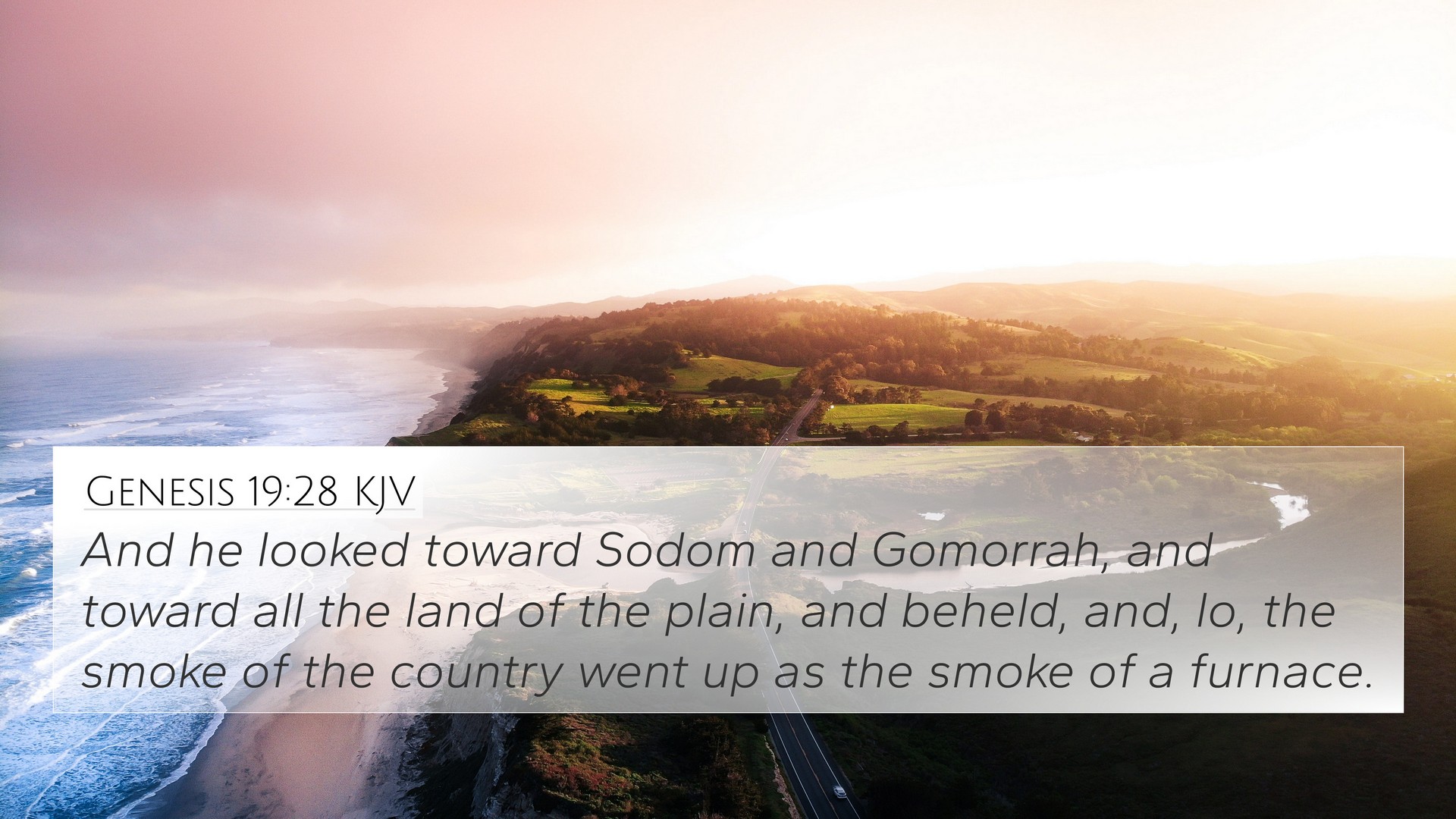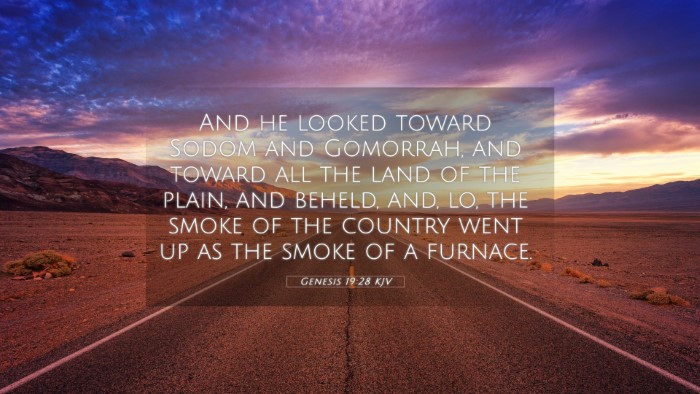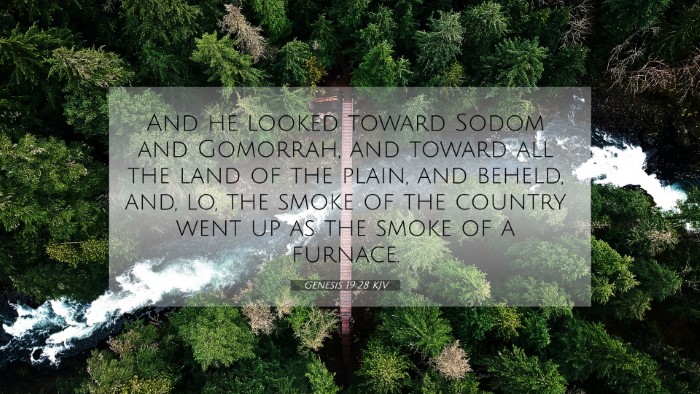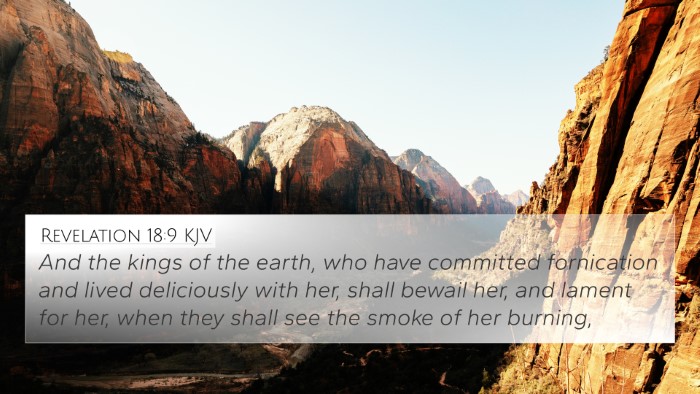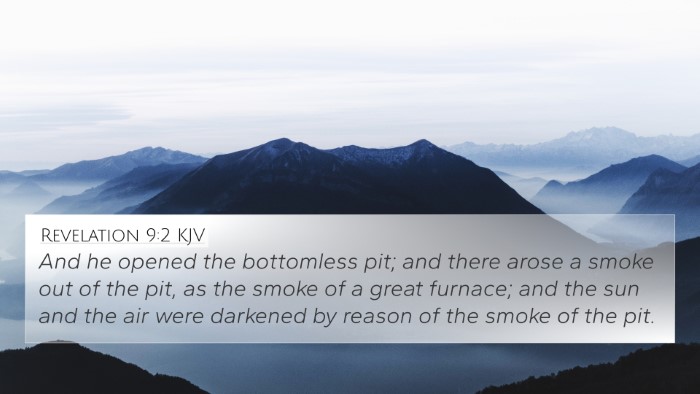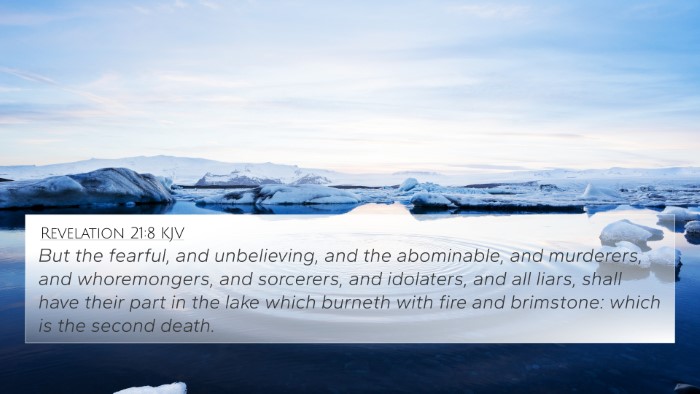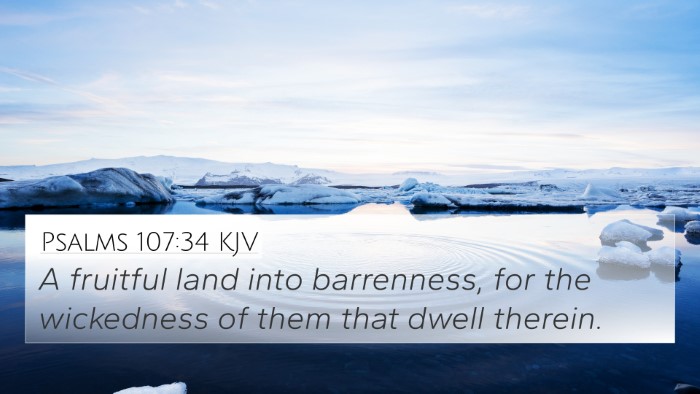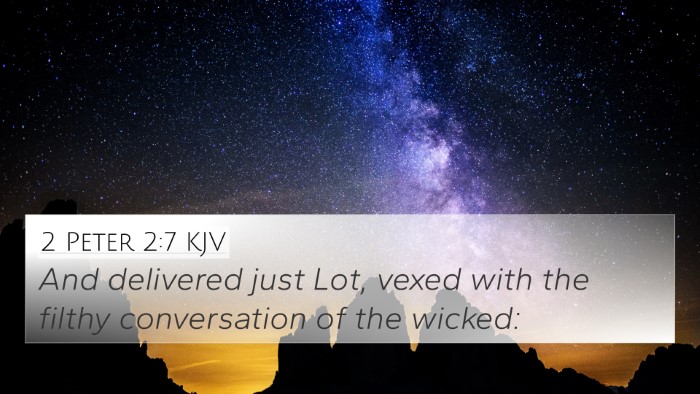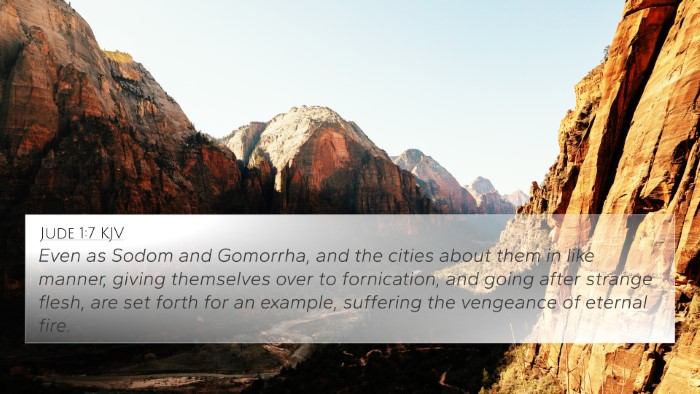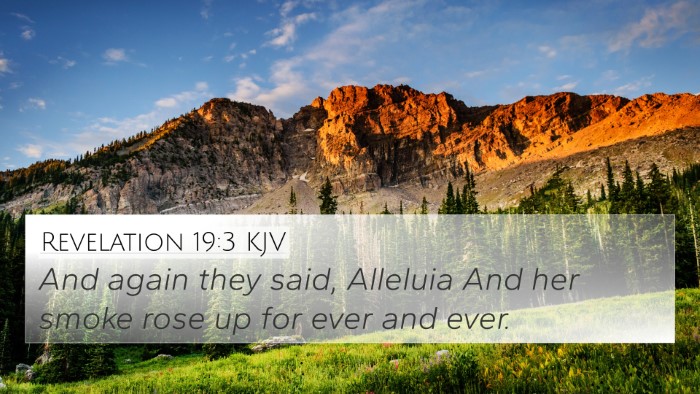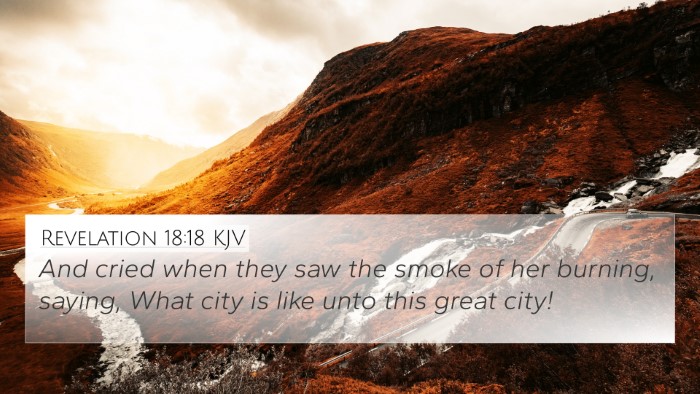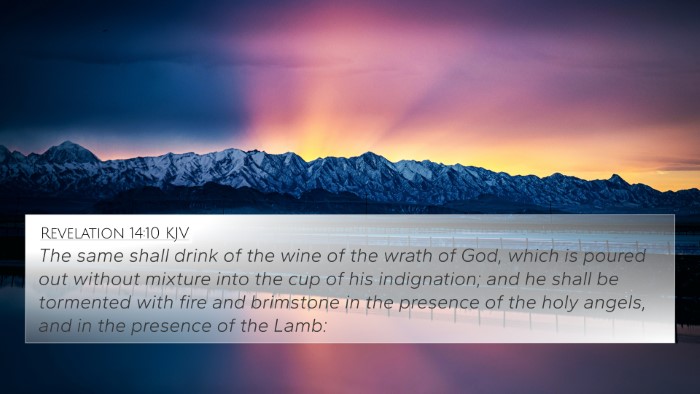Understanding Genesis 19:28
Genesis 19:28 states: "And he looked toward Sodom and Gomorrah, and toward all the land of the plain, and beheld, and lo, the smoke of the country went up as the smoke of a furnace."
Summary of the Verse
This verse depicts Abraham observing the destruction of Sodom and Gomorrah, emphasizing the severity of God's judgment on these cities due to their wickedness. The imagery of smoke rising like that of a furnace suggests an overwhelming and complete destruction, serving as a stark warning about the consequences of sin.
Insights from Commentaries
Matthew Henry's Commentary
Matthew Henry points out that this verse is significant because it highlights Abraham’s intercessory role for Sodom, which he took seriously, illustrating deep compassion even for those in rebellion against God. As he witnessed the destruction, it served as a painful reminder of the gravity of sin and the righteousness of God's judgment.
Albert Barnes' Notes
Albert Barnes reflects on the visual imagery presented in this verse, noting how the smoke serves as a symbol of divine displeasure. He emphasizes that Abraham’s observation indicates a moment of realization for him, realizing that his pleas may have been insufficient to stave off God's judgment on such obstinate wickedness.
Adam Clarke's Commentary
Adam Clarke elaborates on the significance of sight in the spiritual realm. He infers that Abraham looking toward Sodom is symbolic of God’s omniscience and the reminded reality that no sin remains hidden from Him. Clarke asserts that the rising smoke indicates not only physical destruction but also spiritual implications for a society that turns away from divine commandments.
Thematic Cross-References
Genesis 19:28 connects with various other scriptural passages that relate to divine judgment, intercession, and the consequences of sin. Below are significant cross-references:
- Genesis 18:20-21: Studies on God's intention to evaluate the outcry against Sodom and Gomorrah.
- Genesis 19:24-25: Details God's direct destruction of the cities due to their wickedness.
- Deuteronomy 29:23: An explanation of the consequences of disobedience toward God.
- Luke 17:28-30: Links the judgment of Sodom to the Second Coming of Christ.
- 2 Peter 2:6: Discusses how God condemned cities to destruction as an example to those who might sin.
- Revelation 14:10-11: Talks about the final judgment for unrepentant sins similar to that of Sodom and Gomorrah.
- Isaiah 1:9: Reflects the theme of a remnant being saved amid destruction due to sin.
Comparative Analysis
Through comparative Bible verse analysis, we see that Genesis 19:28 serves as a backdrop for understanding God’s nature and the reality of judgment. As the interconnectedness of these scriptures unfolds, they reveal a consistent theme of divine justice:
- God’s Judgment: It relates to the theme of judgment seen across scripture, as evidenced in other traditional narratives of biblical judgment.
- Intercession and Mercy: Abraham’s role as an intercessor showcases themes of mercy and grace found in other narratives, like Moses’ intercession in Exodus 32.
- God’s Knowledge: The omniscience of God, highlighted throughout both Old and New Testaments, emphasizes that nothing escapes His notice.
Concluding Thoughts
Genesis 19:28 serves not only as an account of judgment but also invites readers to reflect on the broader implications of sin, intercession, and divine knowledge. Utilizing tools for Bible cross-referencing, believers can draw connections between this verse and several others to see the full narrative context of divine justice as portrayed throughout scripture.
Further Study Suggestions
To explore deeper into the connections and implications of this verse, consider:
- Utilizing a Bible concordance to locate related themes and verses.
- Engaging in cross-reference Bible study techniques to uncover deeper meanings.
- Conducting a comparative study of Pauline epistles for parallels in teaching on sin and judgment.
